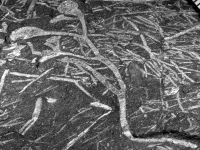New report shows poor morale of UK anaesthesia trainees and that many have no training posts to go to after helping country through COVID-19 pandemic
2021-06-09
(Press-News.org) As new research on anaesthesia trainee morale is published, an impassioned plea is today being made in an open letter from the Association of Anaesthetists to the UK's four Health Secretaries: to urgently double the number of training posts for anaesthetists this summer and for subsequent years so that the UK can safely negotiate the current COVID-19 pandemic, any future pandemics, and deal with the huge backlog of surgical procedures that has built up during lockdown.
The Association has sent a separate letter to go to each Health Secretary - Matt Hancock MP in the UK Department of Health, Humza Yousaf MSP in Scotland, Baroness Eluned Morgan MS in Wales, and Robin Swann MLA in the Northern Ireland Assembly.
Association of Anaesthetists President Dr Mike Nathanson and Trainee Committee Chair Dr Roopa McCrossan explain that due a combination of a number of factors, this year there are many more applicants for specialist training in anaesthesia than in previous years. A recent estimate* found there are only around 350 jobs for approximately 1050 candidates, leaving up to 700 trainee anaesthetists without a suitable training post.
The increase in applicants this year results from a number of factors: the introduction of a new curriculum (mandated by the UK General Medical Council) which places an imperative on obtaining a training post before the regulations** change and the 'goal posts' move; the impact of the COVID-19 pandemic on the number of trainees who might otherwise have spent a year abroad to consolidate their learning but who are now unable to travel and wish to remain in the UK; the difficulty in achieving educational targets while re-deployed during pandemic surges; and a desire to complete training without any further interruptions after the unprecedented pressures and challenges of the last 14 months.
Dr Nathanson and Dr McCrossan add: "Providing these young doctors with training posts now will ensure we have a supply of trained senior staff in five years' time, and during their five-year training they will provide significant service, staff many out-of-hours rotas, and ensure the resilience we need for any further surges of the COVID-19 pandemic."
Recent research published in the Association's journal Anaesthesia revealed the pressure that hospitals in the UK have been under across the winter wave. Furthermore, the most recent census published by the Royal College of Anaesthetists has confirmed the findings of previous censuses that there is a very significant shortage of anaesthetists in the UK (over 1000, and almost certainly closer to 2000). The authors say: "At a time of a very significant shortage in the anaesthetic workforce, it is disappointing and surprising that, to date, there has been no increase in the number of training posts. As a result, the workforce gap will continue to grow. The impact of fatigue and stress, leading to more retirements or moves to part-time working, will only further increase the shortage."
Dr Nathanson and Dr McCrossan also point to the Association's own research*** (embargoed to the time above) that has shown a very significant degree of disillusionment in trainee anaesthetists. They say to the four Health Secretaries: "If you do not act, we believe there is a very real risk that many of these doctors in whom we have already invested time and money in training will be lost to the profession forever as they will seek alternative careers or move to work abroad once travel restrictions are lifted."
They suggest that the number of training posts (ST3) is doubled this year from approximately 350 to 700, and remains at that level for the subsequent two years. They explain that Health Trusts (and Boards) have money set aside for creating non-training 'locally employed doctor' (LED) posts this year as they recognise the need for more anaesthetists. The authors also suggest Health Education England already has money set aside to support the education of trainee anaesthetists. They say: "LED posts will not lead to training of qualified specialists, but if the funds we have identified and some additional new money was used to create training posts then there will be a long-lasting improvement in the anaesthetic workforce and the capability to provide more surgical services."
They conclude by giving an open invitation to the four Health Secretaries to discuss the matter further.
Dr Nathanson says: "There is very little time to act if we are to keep these doctors in the NHS. They have already committed to a career in anaesthesia and have spent at least two years training. We urgently need more anaesthetists; the backlog from the pandemic will take some years to clear, yet we risk losing the future workforce we clearly need. There has been a small increase in training posts in Wales. We need the other administrations to act now."
Dr McCrossan adds: "These highly skilled, dedicated anaesthetic trainees have worked tirelessly during the pandemic, providing the workforce needed to expand critical care. Nearly 700 of these trainees now have no job to go to from August 2021 and we risk losing them from our specialty. There is a documented shortage of consultant anaesthetists and nearly 700 doctors wanting to train in anaesthesia.
"By providing these much-needed training posts now, the four nation governments will resolve the anaesthetic workforce shortage, protecting the future surgical and intensive care capacity of the NHS. In short, it is a simple, cost effective, win-win for the governments involved and the NHS."
INFORMATION:
ELSE PRESS RELEASES FROM THIS DATE:
2021-06-09
According to the National Alliance on Mental Illness and the World Health Organization, depression affects 16 million Americans and 322 million people worldwide. Emerging evidence suggests that the COVID-19 pandemic is further exacerbating the prevalence of depression in the general population. With this trajectory, it is evident that more effective strategies are needed for therapeutics that address this critical public health issue.
In a recent study, publishing in the June 9, 2021 online edition of Nature Translational Psychiatry, researchers at University of California San Diego School of Medicine used a combination of modalities, such as measuring brain function, cognition and lifestyle factors, to generate individualized predictions of depression.
The machine learning and personalized ...
2021-06-09
In "Atchafalaya," John McPhee's essay in the 1989 book The Control of Nature, the author chronicles efforts by the U.S. Army Corps of Engineers to prevent the Atchafalaya River from changing the course of the Mississippi River where they diverge, due to the Atchafalaya's steeper gradient and more direct route to the gulf. McPhee's classic essay proved inspirational to John Shaw, an assistant professor of geosciences who called it "a foundational text."
Indeed, his latest work adds to the story.
In a recent paper published in the American Geophysical Union's journal, Water ...
2021-06-08
Everyone is familiar with tiny gas bubbles gently rising up in sparkling water. But the bubbles that were created by intense focused lasers in this experiment were ten times smaller and contained water vapour at a pressure around a hundred thousand times higher. Under these conditions, the bubble expands at supersonic speed and pushes a shockwave, consisting of a spherical shell of highly compressed water, ahead of itself. Now the research team led by the University of Göttingen, together with the Deutsches Elektronen-Synchroton (DESY) and the European X-Ray Free-Electron Laser (European XFEL), has created such an event and then, with an innovative ...
2021-06-08
The analysis of very old plant fossils discovered in South Africa and dating from the Lower Devonian period documents the transition from barren continents to the green planet we know today. Cyrille Prestianni, a palaeobotanist at the EDDy Lab at the University of Liège (Belgium), participated in this study, the results of which have just been published in the journal Scientific Reports.
The greening of continents - or terrestrialisation - is undoubtedly one of the most important processes that our planet has undergone. For most of the Earth's history, the continents were devoid of macroscopic ...
2021-06-08
CAMBRIDGE, Mass.--(BUSINESS WIRE)--QurAlis Corporation, a biotech company developing breakthrough precision medicines for ALS and other genetically validated neurodegenerative diseases, today announced the publication of an article in Cell Reports titled Human Amyotrophic Lateral Sclerosis Excitability Phenotype Screen: Target Discovery and Validation by QurAlis founders Kasper Roet, Ph.D., Clifford Woolf, M.D., Ph.D., and Kevin Eggan, Ph.D., who pioneered a high-content, live-cell imaging screen using ALS patient-derived motor neurons in combination with a compound library generated by Pfizer to identify drug targets to treat hyperexcitability induced neurodegeneration ...
2021-06-08
A research team from the University of Massachusetts Amherst has created an electronic microsystem that can intelligently respond to information inputs without any external energy input, much like a self-autonomous living organism. The microsystem is constructed from a novel type of electronics that can process ultralow electronic signals and incorporates a device that can generate electricity "out of thin air" from the ambient environment.
The groundbreaking research was published June 7 in the journal Nature Communications.
Jun Yao, an assistant professor in the electrical and computer engineering (ECE) and an adjunct professor in biomedical engineering, ...
2021-06-08
DURHAM, N.C. - Using drones and artificial intelligence to monitor large colonies of seabirds can be as effective as traditional on-the-ground methods, while reducing costs, labor and the risk of human error, a new study finds.
Scientists at Duke University and the Wildlife Conservation Society (WCS) used a deep-learning algorithm--a form of artificial intelligence--to analyze more than 10,000 drone images of mixed colonies of seabirds in the Falkland Islands off Argentina's coast.
The Falklands, also known as the Malvinas, are home to the world's largest colonies of black-browed albatrosses (Thalassarche melanophris) and second-largest ...
2021-06-08
Researchers from the University of Liège (Belgium) have recently developed a new artificial neuron inspired by the different modes of operation of human neurons. Called a Bistable Recurrent Cell (BRC), this process has enabled recurrent networks to learn temporal relationships of more than a thousand discrete time units where classical methods failed after only a hundred time units. These important results are published in the journal PLOS One.
The enormous interest in artificial intelligence (AI) in recent years has led to the development of extremely powerful machine learning techniques. For example, time series - any series of data where a time component is ...
2021-06-08
The speed of water flow is a limiting factor in many membrane-based industrial processes, including desalination, molecular separation and osmotic power generation.
Researchers at The University of Manchester's National Graphene Institute (NGI) have published a study in Nature Communications showing a dramatic decrease in friction when water is passed through nanoscale capillaries made of graphene, whereas those with hexagonal boron nitride (hBN) - which has a similar surface topography and crystal structure as graphene - display high friction.
The team also demonstrated that water velocity could be selectively controlled by covering the high friction hBN channels with graphene, opening ...
2021-06-08
DURHAM, N.H.--Why did the deer cross the road? According to research from the University of New Hampshire to keep going and going and going. Researchers have discovered the longest distance ever recorded by an adult male white-tailed deer--300 kilometers, or close to 200 miles, in just over three weeks. The finding has important implications for population management and the transmission of disease, especially chronic wasting disease, a fatal neurological disease.
"Deer are one of the most abundant, well-known and intensely managed species of wildlife in the United States," said Remington Moll, assistant ...
LAST 30 PRESS RELEASES:
[Press-News.org] New report shows poor morale of UK anaesthesia trainees and that many have no training posts to go to after helping country through COVID-19 pandemic




